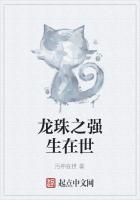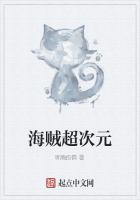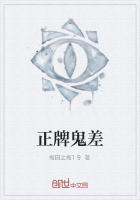It was the face of a good, honest burgher burdened with the cares of a prosperous trade. "Who can he be," thought Otto, "and why does the poor man stand there among all the great nobles?"
But the Abbot walked straight up to him and kneeled upon the floor, and little Otto, full of wonder, did the same. It was the great Emperor Rudolph.
"Who have we here " said the Emperor, and he bent his brow upon the Abbot and the boy.
"Sire," said Abbot Otto, "we have humbly besought you by petition, in the name of your late vassal, Baron Conrad of Vuelph of Drachenhausen, for justice to this his son, the Baron Otto, whom, sire, as you may see, hath been cruelly mutilated at the hands of Baron Henry of Roderburg of Trutz-Drachen. He hath moreover been despoiled of his lands, his castle burnt, and his household made prisoner."
The Emperor frowned until the shaggy eyebrows nearly hid the keen gray twinkle of the eyes beneath. "Yes," said he, "I do remember me of that petition, and have given it consideration both in private and in council." He turned to the group of listening nobles. " Look," said he, "at this little child marred by the inhumanity and the cruelty of those robber villains. By heavens! I will put down their lawless rapine, if I have to give every castle from the north to the south to the flames and to the sword." Then turning to Otto again, "Poor little child," said he, "thy wrongs shall be righted, and so far as they are able, those cruel Roderburgs shall pay thee penny for penny, and grain for grain, for what thou hast lost; and until such indemnity hath been paid the family of the man who wrought this deed shall be held as surety."
Little Otto looked up in the kind, rugged face above him. "Nay, Lord Emperor," said he, in his quaint, quiet way, "there are but two in the family - the mother and the daughter - and I have promised to marry the little girl when she and I are old enough; so, if you please, I would not have harm happen to her."
The Emperor continued to look down at the kneeling boy, and at last he gave a short, dry laugh. "So be it," said he, "thy plan is not without its wisdom. Mayhap it is all for the best that the affair should be ended thus peacefully. The estates of the Roderburgs shall be held in trust for thee until thou art come of age; otherwise it shall be as thou hast proposed, the little maiden shall be taken into ward under our own care. And as to thee - art thou willing that I should take thee under my own charge in the room of thy father, who is dead?"
"Aye," said Otto, simply, "I am willing, for it seems to me that thou art a good man."
The nobles who stood near smiled at the boy's speech. As for the Emperor, he laughed outright. "I give thee thanks, my Lord Baron," said he; "there is no one in all my court who has paid me greater courtesy than that."
So comes the end of our tale.
But perhaps you may like to know what happened afterward, for no one cares to leave the thread of a story without tying a knot in it.
Eight years had passed, and Otto grew up to manhood in the Emperor's court, and was with him through war and peace.
But he himself never drew sword or struck a blow, for the right hand that hung at his side was of pure silver, and the hard, cold fingers never closed. Folks called him "Otto of the Silver Hand," but perhaps there was another reason than that for the name that had been given him, for the pure, ****** wisdom that the old monks of the White Cross on the hill had taught him, clung to him through all the honors that the Emperor bestowed upon his favorite, and as he grew older his words were listened to and weighed by those who were high in Council, and even by the Emperor himself.
And now for the end of all.
One day Otto stood uncertainly at the doorway of a room in the imperial castle, hesitating before he entered; and yet there was nothing so very dreadful within, only one poor girl whose heart fluttered more than his. Poor little Pauline, whom he had not seen since that last day in the black cell at Trutz-Drachen.
At last he pushed aside the hangings and entered the room.
She was sitting upon a rude bench beside the window, looking at him out of her great, dark eyes.
He stopped short and stood for a moment confused and silent; for he had no thought in his mind but of the little girl whom he had last seen, and for a moment he stood confused before the fair maiden with her great, beautiful dark eyes.
She on her part beheld a tall, slender youth with curling, golden hair, one hand white and delicate, the other of pure and shining silver.
He came to her and took her hand and set it to his lips, and all that she could do was to gaze with her great, dark eyes upon the hero of whom she had heard so many talk; the favorite of the Emperor; the wise young Otto of the Silver Hand.
Afterword The ruins of Drachenhausen were rebuilt, for the walls were as sound as ever, though empty and gaping to the sky; but it was no longer the den of a robber baron for beneath the scutcheon over the great gate was carved a new motto of the Vuelphs; a motto which the Emperor Rudolph himself had given:
"Manus argentea quam manus ferrea melior est"














